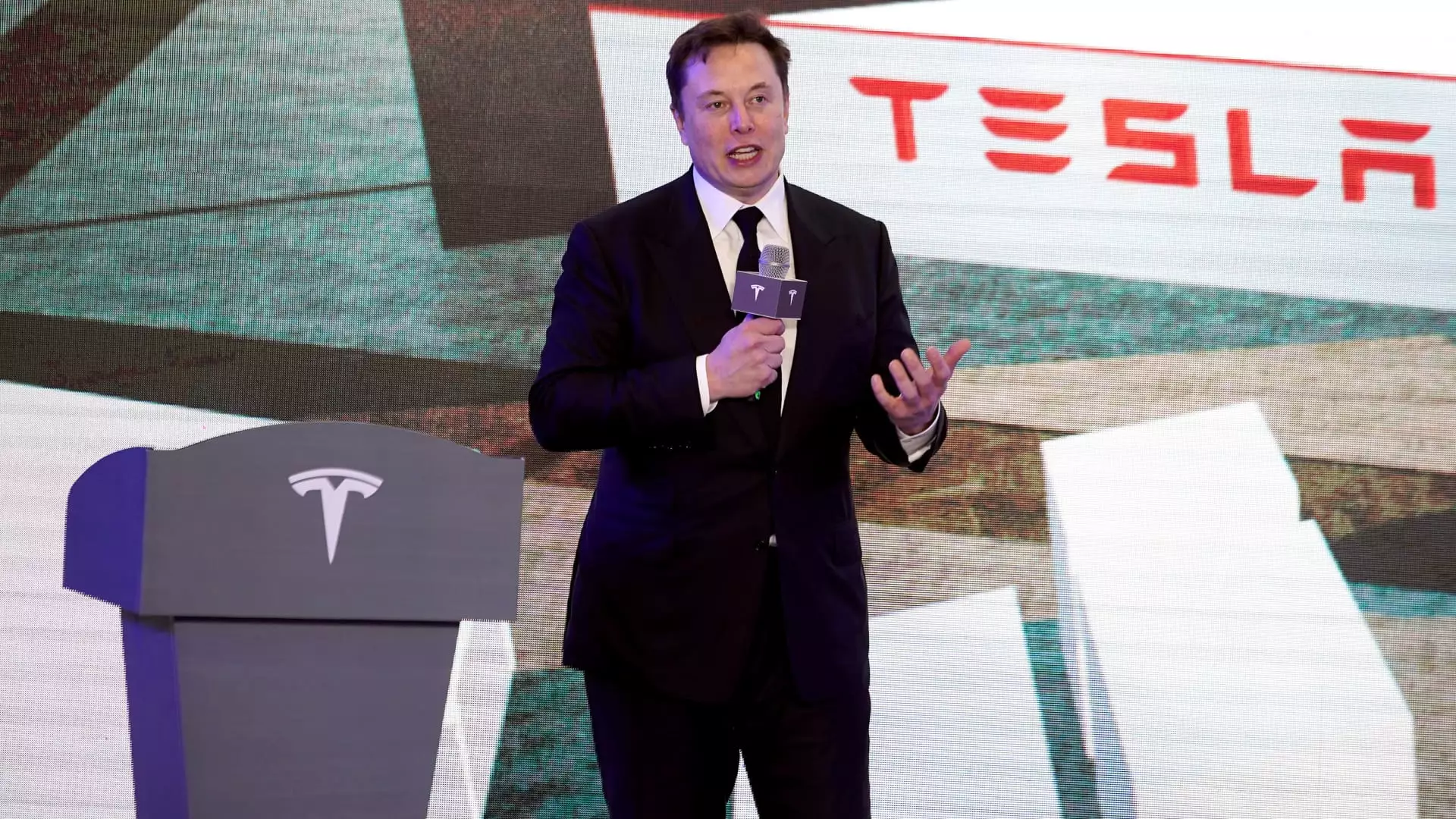In an era characterized by increasing scrutiny of corporate governance, Tesla’s recent regulatory filing raises significant eyebrows. Led by the high-profile entrepreneur Elon Musk, the company’s newly adopted bylaw imposes restrictions on shareholder rights, particularly those related to lawsuits against the company’s executives or board members for breaches of fiduciary duty. By establishing a threshold of 3% ownership of common stock, Tesla effectively puts a sizeable barrier in place for shareholders looking to initiate legal actions. This development prompts critical reflection on the implications for shareholder democracy and corporate accountability.
Understanding the 3% Ownership Threshold
The newly implemented bylaw stipulates that shareholders or alliances of shareholders must collectively hold at least 3% of Tesla’s outstanding shares, a stake currently valued at over $30 billion, to initiate litigation. Such a policy could have profound ramifications, effectively disenfranchising small investors and consolidating power within the hands of wealthier stakeholders. By necessitating a substantial ownership position, Tesla is capitalizing on a Texas state law that facilitates this maneuver, thus strategically sidestepping the more shareholder-friendly regulations associated with its previous Delaware incorporation.
Legal experts, including Ann Lipton from Tulane Law School, argue that this shift reflects Tesla’s attempt to limit legal exposure while potentially discouraging accountability among executives. The rationale behind such restrictive bylaws often hinges on the view that they foster better decision-making by protecting boards from frivolous lawsuits. However, the introduction of such barriers raises critical questions about the balance between protecting corporate executives and ensuring accountability.
A Historical Context for Reassessing Bylaw Changes
Tesla’s move to Texas and subsequent bylaw modifications follow a notable history of shareholder litigation, particularly exemplified by the 2018 case involving Musk’s compensation package. During that period, a relatively minor shareholder successfully challenged the board’s decisions, leading to a judgment that deemed Musk as having undue influence over the board, thus compelling a reassessment of his compensation plan. This incident not only illustrated the power an individual shareholder could wield in holding a major corporation accountable but also led to Musk’s now-famous advice: “Never incorporate your company in the state of Delaware.” The juxtaposition between the previous Delaware regulations and Texas’s more lenient stance underscores the evolving landscape of corporate governance and shareholder rights.
Corporate Accountability vs. Executive Empowerment
While advocates argue that such corporate bylaws protect companies from unwarranted litigations, the underlying motive of shielding executives is hard to ignore. By erecting substantial ownership barriers, Tesla seems to prioritize the interests of a select group of investors while constraining the influence of smaller shareholders, effectively creating a corporate atmosphere where significant accountability appears to diminish. This shift can lead to an environment ripe for potential misconduct or mismanagement, suggesting a troubling trajectory for corporate ethics in highly valued firms like Tesla.
Moreover, as Tesla operates within the high-stakes realm of innovation and cutting-edge technology, the need for robust checks and balances becomes even more critical. The hesitance to challenge mismanagement or decision-making can stifle transparency and resonate throughout the corporate structure, leading to a culture that tolerates more risk without sufficient oversight.
The Bigger Picture: Implications for Shareholder Rights
The implications of Tesla’s bylaw changes extend beyond the immediate concerns surrounding Musk and his executive team; they highlight a broader trend in corporate governance where companies increasingly seek to insulate themselves from shareholder actions. This move could signal a growing acceptance of corporate self-preservation at the expense of the principles of shareholder democracy. Furthermore, as financial markets become more complex and integrated, the need for accessible pathways for accountability and legitimate grievance redressal for all shareholders is pressing.
In a landscape saturated with innovation and disruption, the need for genuine corporate responsibility cannot be overstated. Stakeholders, both large and small, must navigate these changes thoughtfully, advocating for frameworks that engender a culture of accountability, rather than enabling a resurgence of corporate aloofness. This crucial balance lies at the heart of fostering sustainable business practices in an era marked by rapid technological advancement and economic uncertainty.


Leave a Reply